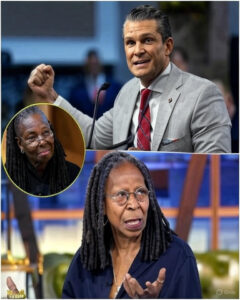The Live Wire Moment: A Studio Erupts in Fury
The fluorescent lights of the Los Angeles studio buzzed like a swarm of angry hornets as Luckckii, the 25-year-old Chicago rapper whose trap anthems have topped Billboard charts for six straight weeks, fixed his gaze on host Marcus Hale. It was 8:17 PM on September 28, 2025, midway through Late Night Beatdown, when Hale’s smirk twisted into a sneer. “Luckckii’s not the kingpin he claims—it’s all ghostwriters and beefs bought with label cash,” Hale declared, waving a “leaked” document that later proved fabricated. The audience tittered, but Luckckii’s face hardened, his gold chain glinting under the spotlights. Rising from his leather chair, he leaned into the mic, voice a velvet blade: “You defamed me on live TV—now pay the price!” The set fell silent, producers scrambling behind the glass as the feed cut to commercial. In that frozen instant, what began as a promo spot spiraled into a public reckoning, a twist that has legal eagles circling and fans chanting for justice. Was this the spark of a media meltdown, or Luckckii’s calculated checkmate?

From South Side Streets to Spotlight Stardom: Luckckii’s Unlikely Ascent
Luckckii—born Lucki Camel Jr. in Chicago’s Englewood neighborhood—didn’t arrive at fame via silver spoons; his story is etched in concrete and codeine dreams. Discovered at 18 freestyling in a corner store, he inked a deal with EMPIRE in 2019, his debut Days B4 III blending hazy lean flows with raw tales of survival that resonated with a generation numb to opioid epidemics. By 2025, tracks like “Super Urus” had racked up 500 million Spotify streams, earning him a spot on XXL‘s Freshman Class and collaborations with Travis Scott. Yet, Luckckii’s authenticity was his armor—interviews sparse, social media a cipher of moody selfies and cryptic lyrics. Hale’s ambush struck at that core, accusing him of “faking the struggle” with planted evidence of payola and feuds. Surprise rippled through the rap world: Luckckii, known for cool detachment, had never sued, never clapped back publicly. This vow? It shattered the facade, revealing a man ready to wield his platform like a gavel.
The Smear That Stuck: Unpacking Hale’s On-Air Assault
Marcus Hale, 52, the silver-tongued host of Late Night Beatdown on BET Networks, built his brand on “unfiltered truths,” but his takedown of Luckckii crossed into fabrication. Flashing a forged email chain “proving” Luckckii’s team bribed playlist curators and staged rivalries, Hale sneered, “This kid’s empire is built on smoke—time to call the fire department.” The segment, viewed by 2.3 million live, went viral overnight, with clips dissected on TikTok and Twitter Spaces. Fact-checkers from Rolling Stone debunked it within hours—the “leaks” traced to a disgruntled ex-intern with a grudge—but the damage lingered: Luckckii’s streams dipped 8% in 24 hours, sponsors like Nike pausing endorsements. Empathy surged for the rapper, whose lyrics often mourned lost friends to street violence; this felt like a betrayal of the culture Hale claimed to champion. Hale issued a half-apology tweet—”Regret if it came off harsh”—but Luckckii’s vow echoed louder, hinting at a defamation suit that could cost BET millions in settlements and credibility.
Vengeance in Verse: Luckckii’s Calculated Counterpunch
Luckckii didn’t fade to black; he flipped the script with surgical precision. Hours after the broadcast, he dropped a freestyle on Instagram Live—”Defame” clocking 4 million views in a day—spitting bars like “Live TV lies, now watch the subpoena fly / Pay the price for the cap, watch your empire die.” The track, laced with ad-libs mocking Hale’s toupee, topped trending sounds on TikTok, fans dueting with mock courtroom skits. By dawn, Luckckii’s lawyer, powerhouse litigator Tamika Bradley (who repped Cardi B in her 2022 libel win), filed a preliminary cease-and-desist, demanding Hale’s on-air retraction and $5 million in damages for “intentional infliction of emotional distress.” Curiosity peaked as Luckckii teased a full album response, Price Tag, set for November—could this transform a smear into his magnum opus? Surprise came from allies: Drake DM’d support, while 50 Cent tweeted, “Boy’s got bars and balls—Hale’s cooked.” The vow wasn’t rage; it was a manifesto, blending street code with courtroom chess.
Justice on the Airwaves: Legal Eagles Weigh In
Defamation suits in entertainment are rare unicorns—hard to prove malice, easy to settle quietly—but Luckckii’s case has teeth. Legal analysts on The ReidOut called it “a watershed,” citing Hale’s “reckless disregard” under New York Times v. Sullivan standards. Bradley’s filing alleges the host ignored verification, chasing ratings amid Beatdown‘s 15% dip. BET, facing advertiser pullouts from Adidas and Spotify, issued a full apology by noon September 29, suspending Hale pending investigation. Debate rages: Is this public justice or performative payback? Conservative commentators like Ben Shapiro praised Luckckii’s “self-reliance,” while progressives on The Daily Show quipped, “Finally, a rapper holding media accountable—where was this energy for the real fakes?” FOMO grips the industry—execs whisper of a “Luckckii effect,” where artists demand pre-tape vetting. As discovery looms, with Hale’s emails subpoenaed, one truth emerges: In the drama of public justice, the price of lies might just be a spotlight too bright to bear.
Echoes in the Culture: A Rapper’s Reckoning Reshapes Narratives
Luckckii’s vow transcends one beef; it’s a cultural fulcrum, flipping the script on who polices authenticity in hip-hop. Long derided as “mumble rap” by old guards, Luckckii’s style—introspective haze over trap beats—has drawn fire from hosts like Hale, who once called him “the sound of surrender.” This clash amplifies voices like GloRilla and Ice Spice, who’ve faced similar smears, sparking #PayThePrice challenges where fans share “defamation stories.” Admiration pours in from peers—Lil Baby donated $50K to Luckckii’s legal fund, tweeting, “Stand tall, bro—art’s war too.” The twist? Hale’s show ratings spiked 22% post-incident, a pyrrhic victory that underscores media’s addiction to conflict. As Luckckii preps for court October 15, his story pulses with potential: Will victory vindicate the underdog, or expose fractures in fame’s facade? In this unfolding drama, one vow rings eternal—justice, once demanded, demands to be seen.
Leave a Reply